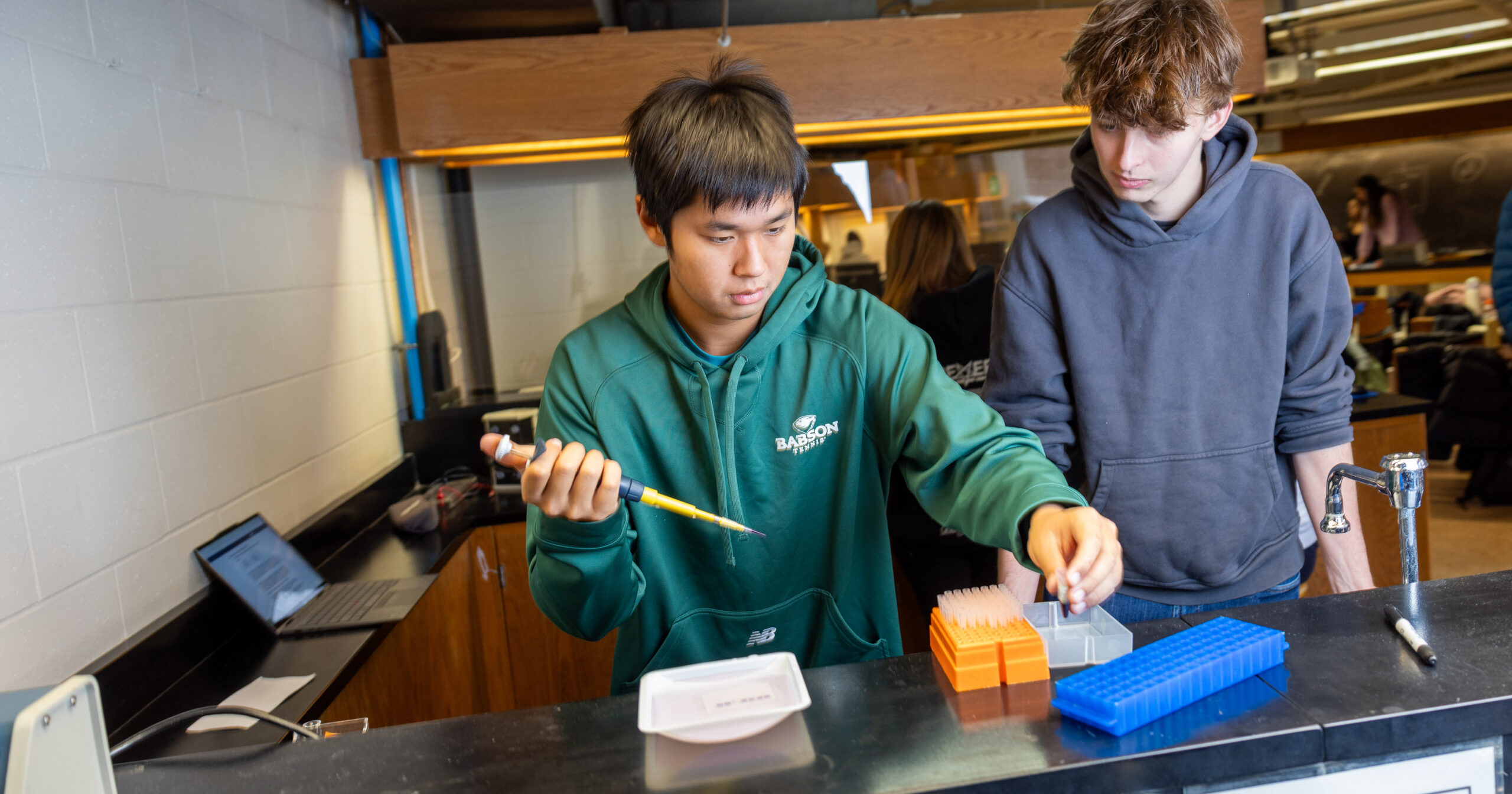How One Babson Student Sold His Startup

A great idea. A make-it-happen mindset. Being in the right place, with the right solution, at the right time. A dose of luck. These are all key ingredients for launching a startup business venture. But they’re equally important on the flip side, when it’s time to exit.
How to Sell a Startup
There are many factors to consider when selling your startup business from clearly defining your business differentiators to weighing the pros and cons of sale. In this article we will dive into how a Babson Alum went through the process of selling his startup BRUW.
Max Feber ’21 has been working on his cold-brew coffee startup company BRUW since he was a high school sophomore. He’s grown the company during his time at Babson, taking it all the way to Shark Tank, where he landed a deal with Mark Cuban.
Feber said he had been thinking about moving on from BRUW for some time. Among the factors behind the decision: burnout.
“I realized I began to wake up every day exhausted by the business. I didn’t feel the same energy as in the beginning. The thought of fundraising or significantly scaling BRUW was no longer exciting. I do eventually want to run a company and do these things, but I don’t think BRUW is the right venture for this time in my life.”
Time to Find a Buyer
It was time to find a startup acquisition partner. But how?
“Somebody told me that in order to sell a company, you need a list of 100 companies, 30 of which might be interested, and one or two might actually make an offer,” says Feber. So, he started compiling lists, making cold calls, and sending emails.
“If I could do it again, I would start talking to potential partners from the start of the business, or by year two or three, to start building relationships long before you decide you want to exit,” he says. Building strong business relationships and generating interest in your startup business can help to sell a startup business when the time is right.
With a partnership that fell through and his plans to sell his startup business temporarily on hold, Feber instead decided to launch a new product line: cold brew tea. He tapped the Shark Tank alumni Facebook group and reached out to fellow Shark Tank entrepreneur Jenni-Lyn Williams, CEO of SnarkyTea, about a product partnership.
Feber describes Williams as being great to work with and “very receptive” to the new product line. “Halfway through the project, she said ‘I really might just be interested in acquiring BRUW.’” For Feber, the shift from launching a new product to selling BRUW altogether was unexpected. “I’d been looking for an acquisition partner for months and then they just pitched it out of the blue. They proposed the idea, I didn’t even bring it up.”
“At another school, I would not have had three professors and the President of the College supporting me in selling my company, or giving me business advice outside of class.”
Max Feber '21
Support From the Team
Shifting into startup acquisition mode, Feber started getting input from his advisors and investors, including Cuban. “I value his opinion a lot,” says Feber. “I sent him a two page email where I said here’s what we have on the table, here’s what SnarkyTea has offered, here’s all my reasoning both personally, professionally, and financially for why I want to sell. What do you think?”
Cuban’s one line response was “Max, I support you no matter what, don’t worry.” For Feber, it was the most helpful thing he could have heard when making the ultimate decision on selling the startup.
Feber found support at Babson too.
“I spoke with President Spinelli about it, and he also pointed me to Professor Len Green, and they both gave me insight and great advice.” Feber points to Professors Brad Johnson and Joel Shulman, describing the whole Babson community as really having his back. “At another school, I would not have had three professors and the President of the College supporting me in selling my company, or giving me business advice outside of class.”
Feber also drew on the accounting, finance programs, and negotiation lessons he’s learned at Babson as he worked on the acquisition deal.
“You need to know what your tax obligation is going to be once you sell, you need to know the actual value you’re gaining from the sale, whether you want stock or whether you want cash, how you’re transferring assets – these are all things you just need to know, and that, plus the personal relationships with your professors, is what sets a Babson education apart.”
A Massive Sigh of Relief
After five years running BRUW, Feber describes feeling a massive sigh of relief when he finally sold the company and walked away. “Exiting BRUW was the biggest sigh of relief. As much as I loved the time I spent running it, being able to wake up without worrying about cashflows, staff, or delays in our supply chain was a pretty good feeling.”
At the same time, the moment is bittersweet. “BRUW has been this thing that I’ve been running for the past five years and now it’s gone. BRUW became a very core part of my identity over the years; it’s very strange that its no longer a part of me. While I’m incredibly excited, there’s some real sadness too.”
But for now?
“I’m planning on enjoying my senior year of college like a normal college student,” says Feber. “And then after Babson, either getting a job or starting a company or both. I know for sure that I will be starting another company at some point, I have no doubt.”



